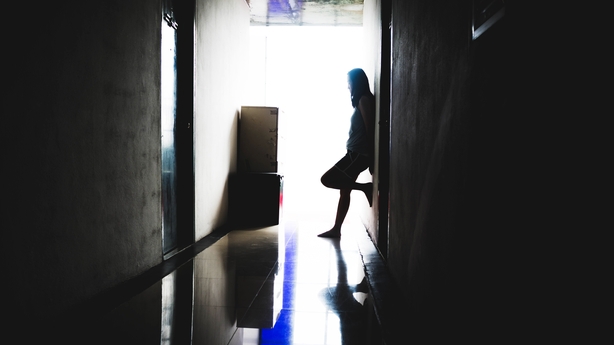It is hoped new legislation to give the HSE, Tusla, NGOs and charitable organisations the power to formally recognise victims of human trafficking will be enacted next week, according to Minister for Justice Helen McEntee.
Currently, An Garda Síochána is the only organisation that can legally designate people as victims of human trafficking.
Ms McEntee described this as an inadequate response to the problem of human trafficking while speaking in Cork, where she is attending a two-day conference on combating human trafficking.
Eighty delegates from 20 international police forces are attending the conference, along with the Catholic Church, NGOs, charitable organisations and representatives of the justice sector.
Ms McEntee praised gardaí and Detective Chief Superintendent Colm Noonan for hosting the conference.
However, she said Ireland needed to step up its response to human trafficking.

"Gardaí do fantastic work, and we are building up our teams and our resources in An Garda Síochána to be able to deal with this heinous crime. However, we need to do more," Ms McEntee told RTÉ News.
She added: "Making it easier for victims of trafficking to be identified is one very practical and victim-centred example of how we are giving effect to our commitment to ensure that all victims can access the supports and services they need."
Ms McEntee said she expected legislation to pass through the Dáil by next Wednesday which will provide for a new national referral mechanism.
This framework, according to Ms McEntee, would be for identifying victims and linking them with supports and services.
"This new referral mechanism provides for various ways for victims to come forward, including trusted NGO partners," Ms McEntee said.
She said that, as part of an action plan, training would be provided across government departments and State agencies for staff who come in contact with victims of human trafficking.
Speaking at the same conference, Garda Commissioner Drew Harris welcomed the enactment of legislation providing for the national referral mechanism.
"For us, in An Garda Síochána, this piece of legislation will significantly benefit victims by providing better access to supports and routes to report this crime," Mr Harris said.
"This national referral mechanism will provide a more streamlined response and will provide for the identification of victims who have been hidden in plain sight and ensure they are provided with the support they need."
Last year, 53 people were identified as victims of human trafficking in Ireland.
Most of them were women and sexual exploitation was the motivation in most cases.
Some were exploited for labour and a small number were forced into criminality, according to figures provided by gardaí.
The conference will continue in Cork tomorrow.
Bishops call on parishes to be more aware of human trafficking
Irish Catholic Bishops have called on parishes to play their part in becoming more informed about human trafficking and increase awareness about how to support victims.
It is being hosted by An Garda Síochána, in conjunction with the Santa Marta Group. The Santa Marta Group, under the patronage of Pope Francis, was established ten years ago to bring about change to end human trafficking through law enforcement, civil society and the Catholic Church.
The focus of the conference is to highlight a "unified commitment" in identifying and supporting victims of Human Trafficking along with identifying methods to disrupt, dismantle and prosecute organised crime groups involved in trafficking.
The most recent Trafficking in Persons Report (TIP) from the US State Department, which ranks governments worldwide on their perceived efforts to acknowledge and combat human trafficking was published on Monday.
While it noted Ireland’s ‘overall increasing efforts’ in addressing the seriousness of human trafficking, it remains a Tier 2 country.
This means Ireland "does not fully meet the minimum standards for the elimination of trafficking, but is making significant efforts to do so".
The TIP report said victims of trafficking in Ireland need to be identified and assisted through a revised National Referral Mechanism (NRM).
Legislation establishing a new NRM is contained in the Criminal Law (Sexual Offences and Human Trafficking Bill) 2023.
In a joint statement this afternoon, the Irish Catholic Bishops welcomed the move to put the National Referral Mechanism on a statutory footing.
However, they said legislation "is only as good as the resources in place to implement it and to root out this awful crime".
"Human trafficking is wrong; it is illegal, and it is sinful. The State has a duty to empower people working in this area and in the area of prevention and the prosecution of traffickers", they said.
The bishops have called for greater cooperation between the governments north and south on the island, which they said was "even more urgent due to the increased numbers of immigrants forced to come here from the UK".
The TIP report called for vigorous investigations and prosecutions in relation to human trafficking crimes in Ireland.
It also said adequate penalties for convicted traffickers were required "which should involve significant prison terms and ensure labour trafficking is pursued as such rather than labour code violations".
The report said increased efforts were required to "proactively identify" and protect all victims, especially Irish citizens, victims of labour trafficking and forced criminality, and vulnerable populations like children, sea fishers, and asylum-seekers.
Additional reporting Ailbhe Conneely







